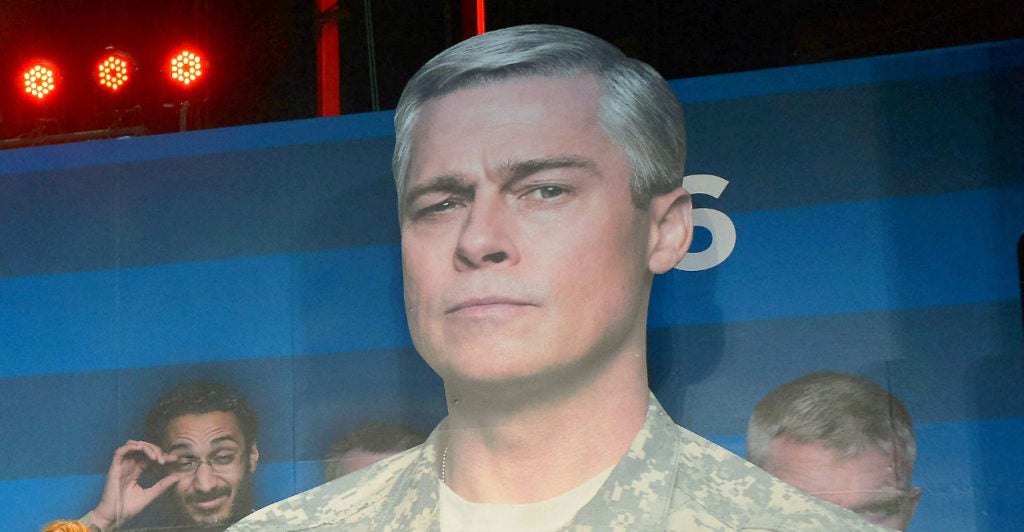“War Machine,” a newly released film produced by Netflix, is a satirical skewering of the U.S. war effort in Afghanistan.
It stars Brad Pitt as a very thinly veiled version of Gen. Stanley McChrystal, the senior commander of U.S./allied military operations in Afghanistan for a year, from June 2009 until June 2010.
As a “dark satire,” the writing and acting are exaggerated in portraying both McChrystal (referred to as “Gen. Glen McMahon”) and his ultra-loyal entourage. The film offers snapshots of events that give visual life to a bombshell Rolling Stone essay from the late journalist Michael Hastings that led to McChrystal’s dismissal.
”War Machine” has received very mixed reviews, with most taking a critical opinion of the acting and editing. Interestingly, a few reviews have noted that the most positive reception has been from military personnel who have served in Afghanistan.
My take is that the film was less about the individuals involved, and more about the nature of COIN (counterinsurgency) and the U.S. approach to foreign interventions.
As the movie’s narrative argues, Americans can’t seem to help themselves in taking the rosiest views of what our “can-do” attitude can accomplish, driven by the extraordinary self-confidence of the military leaders chosen to fix problems—despite the fact that local conditions (history, culture, societal norms, values, traditions, etc.) offer little to nothing in support of U.S. objectives.
The central irony that runs through the film is that, in spite of official (and often truly believed) military rhetoric about how we understand the local environment well enough to chart a path to victory, the concrete military objectives fall short, showing just how badly disconnected theory and doctrine can be from on-the-ground reality.
Pitt’s character reflects these naïve aspirations. He cannot help using all the catch phrases and aphorisms that populate COIN doctrine, yet he struggles to explain what they really mean when questioned by various characters throughout the movie: a young Marine corporal, a German parliamentarian, a British staff officer, and even Ben Kingsley’s wonderfully portrayed Afghan President Hamid Karzai.
The movie was released concurrently (though it cannot have been planned this way) with the pending release of a revised strategy for Afghanistan that Secretary of Defense James Mattis is to deliver to the White House very soon.
The biggest question I hope to hear answered in that strategy: What conditions have changed in Afghanistan—national leadership in Kabul, support from local populations, competency and reduced corruption of the Afghan national army and police, etc.—such that an additional 3,000-5,000 troops will accomplish the objectives that have eluded the U.S. for the past 15-plus years?
Because the U.S. does have global interests and remains concerned (rightfully so) about the potential for destabilizing threats to take root in areas of the world that are poorly governed or governed by regimes hostile to the U.S., we tend to get involved in places no one else will.
But when we do, or when we consider doing so, it would be nice to take an approach that actually accounts for local conditions.
This would set our expectations in line with what can actually be achieved, or else enable us to devote the time and resources needed to achieve what we want in spite of local conditions that do not inherently align with our interests and “the American way of war” (if it’s that important).
“War Machine” raises these issues, and does so in a way that brings light to the real-world burdens placed upon the troops who are tasked with executing the plans drafted by confident generals and their political seniors, who are often far removed from the actual battlefield.
The film is worth watching, if only to remind ourselves of the ever-present danger of hubris and its consequences.
